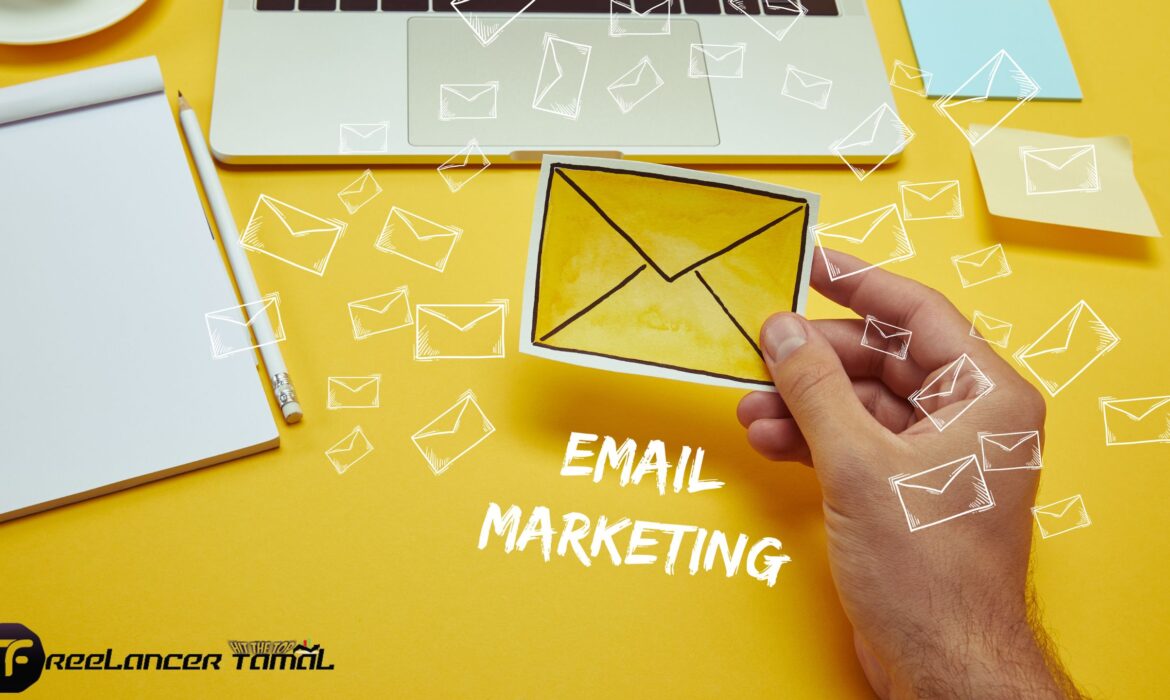
Understanding Email Marketing
In the digital world, email marketing is a powerful tool that I believe should be in every marketer’s arsenal. It’s not just about sending emails; it’s an artful balance of crafting compelling content, targeting the right audience, and analyzing key metrics to continually refine your strategy.
Importance of Email Marketing
Email marketing is far from obsolete. In fact, it’s one of the most effective digital marketing strategies with an impressive return on investment (ROI). For every $1 spent on email marketing, the average return is $38, which translates to an ROI of 3800% (Source). This remarkable ROI is a testament to the power and efficiency of email marketing tools.
Companies like HubSpot have integrated email marketing tools into their suite of marketing resources to help businesses reach their audience more effectively, demonstrating the importance of this digital marketing strategy.
Email marketing is a cost-effective way to reach your audience, build relationships, and drive conversions. Its success is closely tied to its ability to deliver personalized and relevant content directly to people who have expressed interest in your brand or products. And with the right email marketing tools, you can automate and streamline this process to maximize your marketing efforts.
Key Metrics in Email Marketing
Understanding and analyzing key metrics is crucial to the success of any email marketing campaign. These metrics provide insights into your campaign’s performance and help identify areas for improvement.
-
Open Rate: This metric measures the percentage of recipients who open an email. It’s a direct reflection of your subject line’s effectiveness and your audience’s engagement level.
-
Click-through Rate (CTR): CTR measures the percentage of recipients who click on a link within an email. A high CTR indicates that your content is compelling and relevant to your audience (Source).
-
Conversion Rate: This metric measures the percentage of recipients who take a desired action after clicking on a link in an email, such as making a purchase or filling out a form. Conversion rates can vary widely depending on the industry and the specific call-to-action.
| Key Metric | Description |
|---|---|
| Open Rate | The percentage of recipients who open an email |
| Click-through Rate (CTR) | The percentage of recipients who click on a link within an email |
| Conversion Rate | The percentage of recipients who take a desired action after clicking on a link in an email |
By closely monitoring these metrics, you can better understand your audience’s behavior and preferences, allowing you to refine your email marketing strategy for better results. Using email marketing tools can help you track these metrics and gain valuable insights into your campaign performance.
Features of Effective Email Tools
When it comes to choosing the right email marketing tools, there are several key features I believe you should consider. These features can dramatically enhance your email marketing efforts and contribute to the success of your digital marketing campaigns.
Automation and Segmentation
One of the most important features to look for in an email marketing tool is automation. This feature allows you to set up autoresponders, which are pre-written emails that are sent to subscribers based on certain triggers or actions. This can save you a significant amount of time and effort by automating routine tasks, leaving you more time to focus on other aspects of your business.
In addition to automation, the ability to segment your email list is a crucial feature. Segmentation allows you to categorize your subscribers into different groups based on their interests, behavior, or demographics, and send targeted emails to each segment. This can result in higher open rates, click-through rates, and conversion rates, as your emails are more tailored to the needs and preferences of your subscribers.
Integration and Compatibility
Another important feature to look for in an email marketing tool is integration capabilities. The ability to integrate with other platforms and tools can streamline your marketing processes and improve efficiency. It allows you to connect your email marketing efforts with your website, CRM system, e-commerce platform, and other tools like social media management tools, lead generation tools, or website analytics tools (Elegant Themes).
Analytics and Reporting
Advanced analytics and reporting features are also important when choosing an email marketing tool. These features allow you to track the performance of your email campaigns and provide insights into key metrics such as open rates, click-through rates, and conversion rates (Elegant Themes). This data can help you measure the success of your campaigns, identify areas for improvement, and make informed decisions about your email marketing strategy.
In addition to these features, some email marketing tools also offer A/B testing capabilities. This feature allows you to test different elements of your emails, such as subject lines, content, or call-to-action buttons, to determine which version performs better and improve your overall campaign effectiveness. You can learn more about A/B testing tools in our article on a/b testing tools.
By considering these features when selecting an email marketing tool, you can ensure that you choose a tool that meets your needs and helps you achieve your digital marketing goals.
Top Email Marketing Tools
When it comes to email marketing, the tool you choose to use can make a world of difference. From automation to analytics, the best email marketing tools offer a variety of features to help you optimize your campaigns. Let’s dive into a few of the top options available today.
Exploring Mailchimp
First on our list is Mailchimp, one of the most popular email marketing tools on the market today. With over 14 million users worldwide, it’s safe to say that Mailchimp has made a significant impact on the digital marketing landscape.
One of the standout features of Mailchimp is its user-friendly interface, making it a great choice for beginners. Additionally, Mailchimp offers a range of pricing plans to fit different budgets, making it an accessible option for businesses of all sizes.
Mailchimp’s features include:
- Email automation
- Segmentation
- A/B testing
- Detailed analytics and reporting
Insights into ActiveCampaign
Next up is ActiveCampaign, a powerful tool designed to streamline your email marketing efforts. Known for its advanced automation features, ActiveCampaign can help you save time and increase efficiency.
With ActiveCampaign, you can automate a wide range of email marketing tasks, including sending follow-up emails, segmenting your audience, and tracking campaign performance. Plus, the platform integrates with a variety of other digital marketing tools, making it a versatile choice for your marketing stack.
ActiveCampaign’s features include:
- Advanced email automation
- CRM functionality
- Detailed analytics and reporting
- Integrations with other digital marketing tools
Discovering Sendinblue
Last but not least, let’s explore Sendinblue. This email marketing tool stands out for its generous free plan, which allows you to send up to 300 emails per day to an unlimited number of subscribers.
Sendinblue offers a range of features designed to help you optimize your email marketing campaigns. With this tool, you can easily design professional-looking emails, segment your audience, and track your campaign performance.
Sendinblue’s features include:
- Email design templates
- Segmentation
- Email automation
- Detailed analytics and reporting
These are just a few of the top email marketing tools available today. The best tool for you will depend on your specific needs and goals. Be sure to consider factors like pricing, features, and user-friendliness when making your decision.
Remember, successful email marketing is about more than just sending emails. It’s about sending the right message, to the right people, at the right time. With the right tool in your toolkit, you’ll be well on your way to achieving email marketing success.
For more information on digital marketing tools, be sure to check out our articles on keyword research tools, social media management tools, and content marketing tools.
Enhancing Email Marketing Success
To leverage the full potential of email marketing tools, you need more than just the basic features. It’s important to take advantage of advanced capabilities such as A/B testing, deliverability, and customization. These features can significantly enhance your email marketing success.
Role of A/B Testing
A/B testing plays a significant role in email marketing. This practice involves sending different versions of an email to a small subset of your audience to determine which version performs better. By analyzing the results, you can optimize your email campaigns for better effectiveness.
For instance, you can test different subject lines, email designs, or call-to-actions to see which resonates more with your audience. This will help you to make data-driven decisions and improve the overall success of your email marketing strategy. For more insights into A/B testing and the tools that can help, check out our list of A/B testing tools.
Importance of Deliverability
Deliverability is another critical aspect of email marketing. It ensures that your emails are successfully delivered to the right recipients. Poor deliverability can severely impact your email marketing efforts, leading to low open rates and conversions.
To improve email deliverability, it’s essential to maintain proper email authentication and a good sender reputation. This can be achieved by adhering to email marketing best practices, such as keeping your email list clean and avoiding spam-like behavior.
Customization and Personalization
Customization and personalization are key to standing out in your subscriber’s inbox. Most email marketing tools provide customizable templates, allowing you to personalize your email campaigns with your own content and branding.
Personalization goes beyond simply adding the recipient’s name in the email. It involves tailoring the email content based on the recipient’s behavior, preferences, or past interactions. This level of personalization can significantly improve engagement and conversion rates.
Remember, email marketing is just one aspect of your overall digital marketing strategy. To achieve success in the digital world, you need to leverage a variety of digital marketing tools. This includes keyword research tools, social media management tools, website analytics tools, and more.










